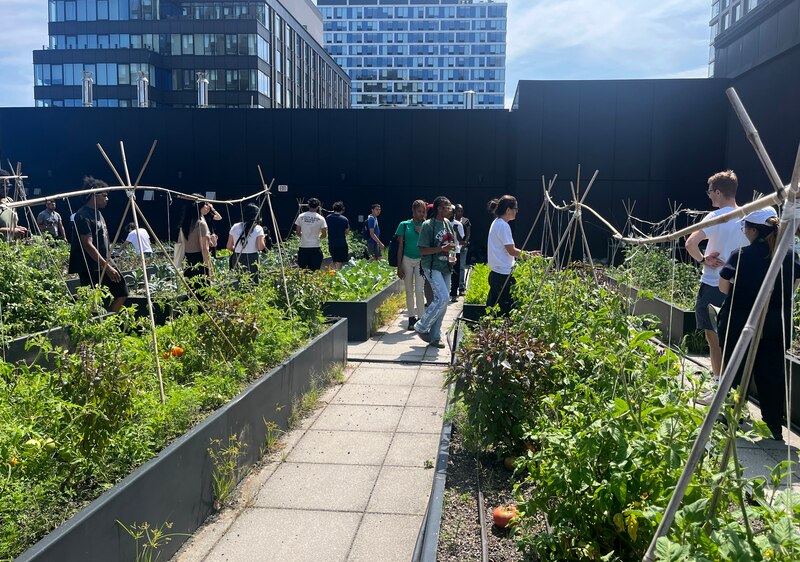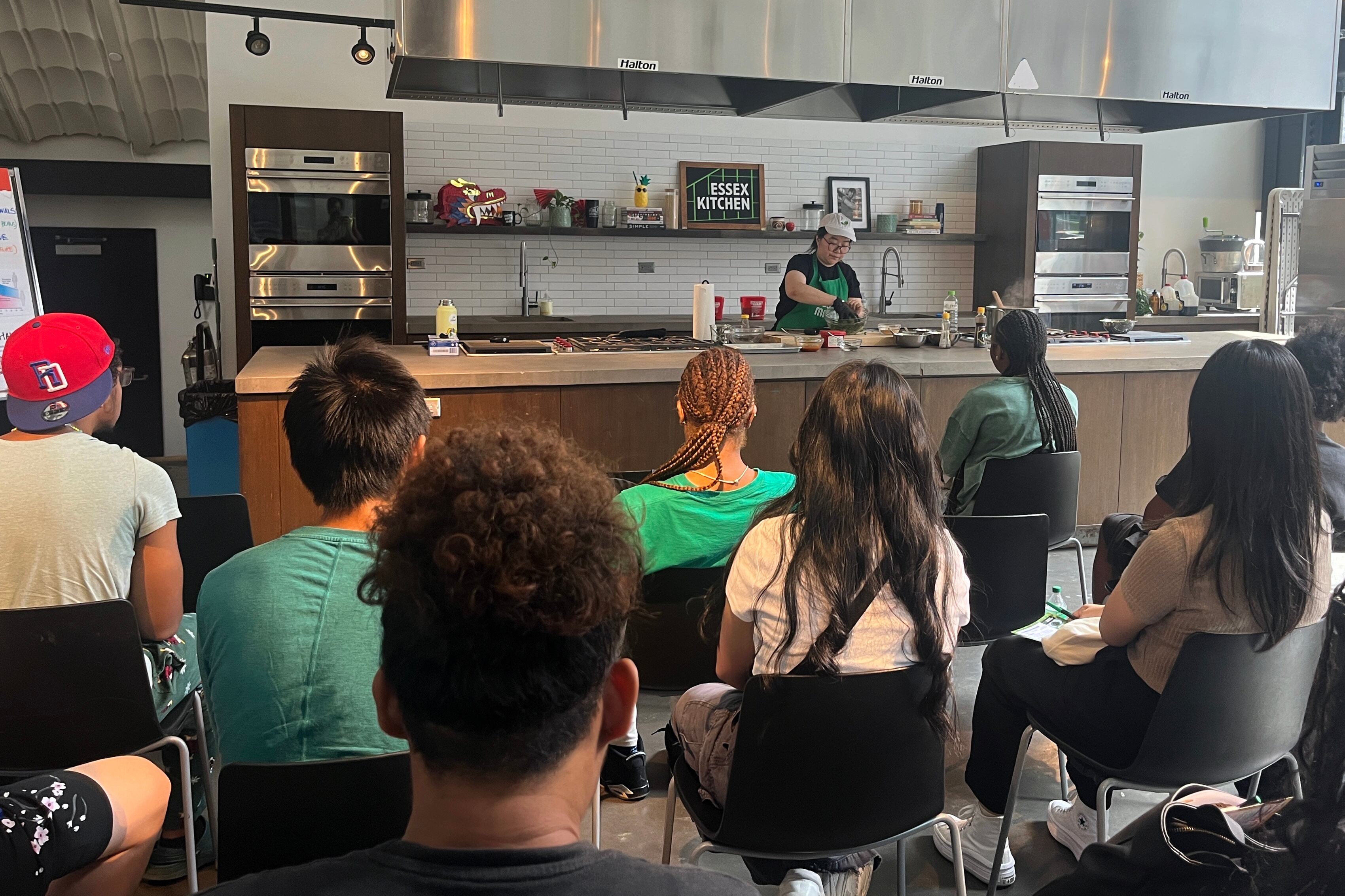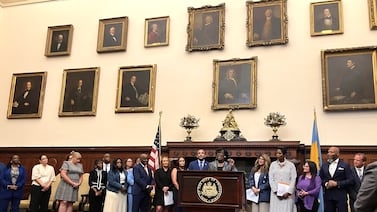Sign up for Chalkbeat New York’s free daily newsletter to keep up with NYC’s public schools.
Edgar Cordova, a rising 12th grader at Xavier High School in Union Square, has spent his summer working in a school kitchen — bagging milk, cleaning tables, and cutting up fruit.
But even though he’s surrounded by cooking constantly, he said he was excited to see a firsthand demonstration tailored to students.
Last month, he sat among roughly a dozen students in a kitchen at Essex Market, a food hall on Manhattan’s Lower East Side, watching as Chef Lily Chin mixed gochujang, honey, water, and vinegar for a sauce for bibimbop, a Korean rice dish.
Though Cordova isn’t doing much cooking in his current position, he added, “Maybe, if I practice more in the kitchen, I’ll improve.”
Cordova is one of about 150 students who found work as a culinary aide through this year’s Summer Youth Employment Program, a New York City program that connects young people between the ages of 14 and 24 to paid work experiences in July and August. Employment through the program has offered Cordova more than just the chance to improve his cooking skills — it’s given him income that he can put toward college and the future.
“I’ve been trying to save it up as much as I can,” he said.
For decades, the Summer Youth Employment Program, also known as SYEP, has provided the city’s youth with paid opportunities to explore potential career pathways. In recent years, it’s also expanded, with Mayor Eric Adams adding 25,000 seats in 2022 — bringing it up to 100,000 spots in total. Last year, the program also made a commitment to matching LGBTQ+ youth with “supportive work opportunities.”
City officials say the program can improve school attendance, reduce incarceration rates, and help keep young people safe over the course of the summer.
Cordova and other SYEP participants attended the cooking demonstration in late July as part of a series of four professional development days for those employed as culinary aides in New York City public school kitchens. These events were organized by the Mayor’s Office of Food Policy. (Adams has repeatedly emphasized the importance of healthy eating, and has included steering kids toward a better diet among his policy initiatives.)
In addition to a tour of Essex Market, students also attended panel discussions on careers in “food advocacy, justice, urban farming, and the connections between food and personal and planetary health,” according to a press release. Students also toured the Staten Island Composting Facility.
Darren Wong, a rising junior who has spent the summer prepping meals at Sunset Park High School in Brooklyn, said even though he works in a kitchen every day, he doesn’t know how to cook. His work has mainly consisted of cleaning the kitchen, preparing pizza and mozzarella sticks for summer school programs, or packaging cold lunches for other school programs.
Still, Wong likes the extra source of income. He said he plans to invest his earnings from the summer.
“I want to try to make more money using what I’ve earned,” he said.
Meanwhile, Jadore Baptiste, a student at the High School for Medical Professionals in Canarsie, said she’s been saving money from SYEP to help her move later this year. Working in the kitchen and helping to serve breakfast and lunch to students at P.S. 181 in Brooklyn has been a fun experience, she added.
“I’m learning,” Baptiste said. “In the kitchen, sometimes when they don’t have things, chefs improvise. So I’m learning how to improvise on meals.”
Chin went on to show students how to cook seasoned watercress, before offering a presentation on the nutrients within different foods. She emphasized the importance of eating calcium-rich foods like watercress. Between the ages of 19 and 30, bone mass in the body is increasing, Chin said. Without sufficient calcium during that time period, individuals become susceptible later in life to osteoporosis, a disease that causes bones to become weak and brittle due to a loss of density and mass.
She also took students on a tour of the market’s rooftop gardens, and then to Mille Nonne, an Italian restaurant on the ground floor, where students spoke with the owners about the work that led to opening their restaurant.

Chin, who teaches cooking classes to both students and seniors, said she’s enjoyed speaking with students interested in potential culinary careers and sharing her own path into the industry as a chef who learned by working at restaurants and did not attend culinary school.
But Chin hopes that if students take anything away from their experience at Essex Market, it’s not strictly about kitchens or cooking. It’s the nutritional information she shared about calcium.
“I didn’t learn about this until I turned 30 — no one told me,” she said. “Everyone says you should have calcium, but never exactly why.”
Julian Shen-Berro is a reporter covering New York City. Contact him at jshen-berro@chalkbeat.org.







